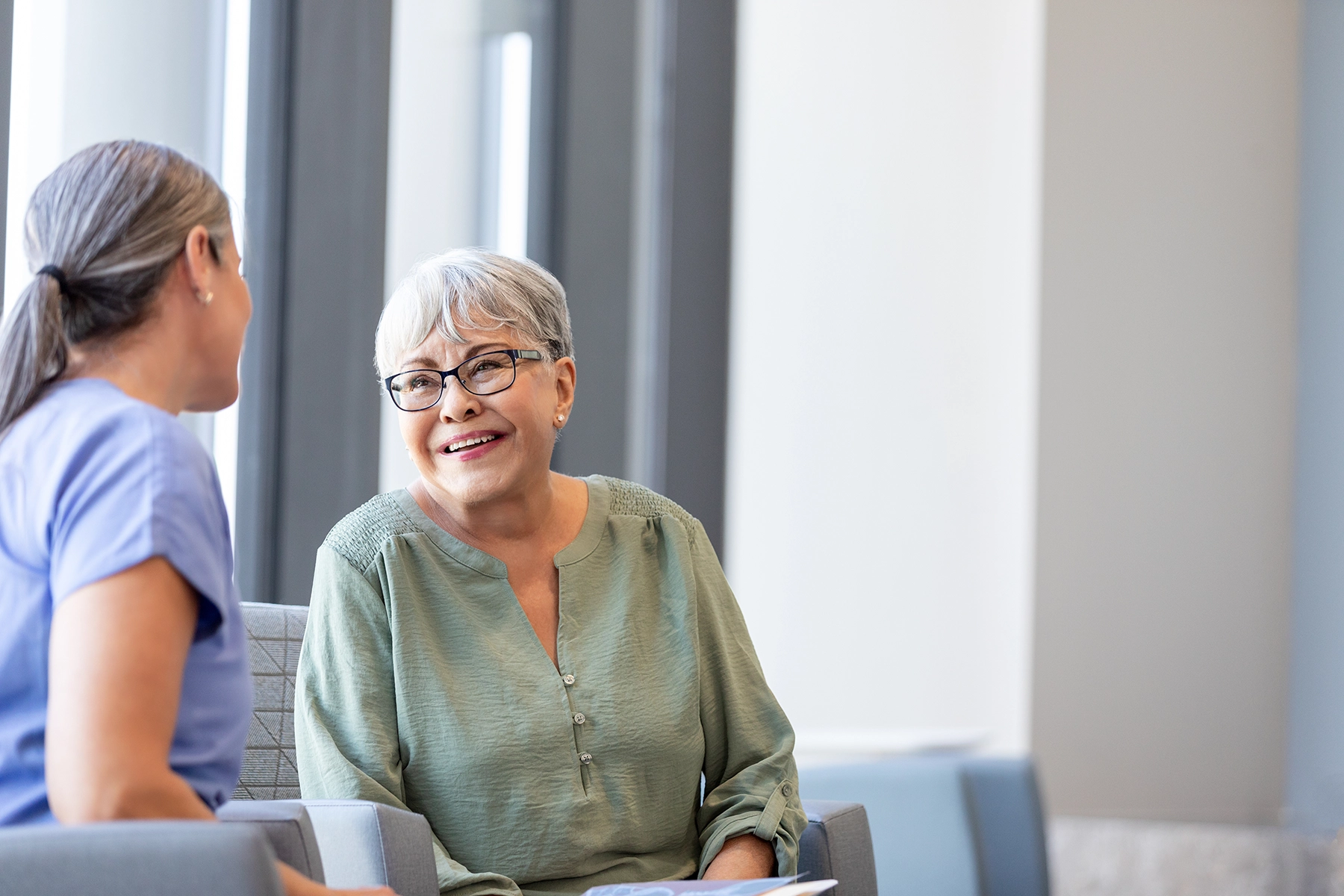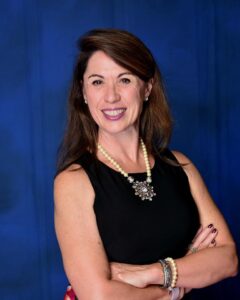Patient Advocacy: It’s About Making a Difference

Debbie Denardi turned her cancer experience into advocacy for patients, organizations and her family.

When Debbie Denardi was diagnosed with triple-negative breast cancer in 2010, her priority was finding the best medical team to treat the life-threatening disease.
Her second priority was undergoing genetic testing to determine if her cancer was linked to the type that took the lives of her mother and two aunts and whether that represented a threat to her sons, her sister, and her nieces and nephews.
Then, Denardi developed an unexpected third priority after seeing wave after wave of stressed cancer patients coming through doctor’s offices and chemotherapy rooms. She wanted to help them, but Denardi wasn’t sure how, as she had no medical training.
An advocate for patients
Denardi has a finance, management and business administration background, and she realized she could use those skills to serve as a patient advocate. In this role, Denardi counsels patients one-on-one, helps hospital administrators and charities fine-tune their operations to serve patients better, recruits patients for research projects and lobbies government officials for help.
“I had my pity party, and then I wanted to put all my energy into advancing the science and making a difference,” she says. “It’s all about leaving a better set of treatments or tools to prevent cancer or at least diagnose it early. That is my vision and my passion. I really want to leave that legacy for my family as well as other families.”
Denardi has become so active as a patient advocate that she’s scaled back her day job as a real estate finance manager to dedicate more time to her volunteer work.
She is now a patient advocate for the Survivorship and Supportive Care program and clinics at Sylvester Comprehensive Cancer Center, part of the University of Miami Health System. She’s also a treasurer of the board of FORCE (Facing Our Risk of Cancer Empowered) and an advocate in Science for the Susan G. Komen Foundation. Denardi also travels to Tallahassee, Fla., and Washington, D.C., to lobby legislators on new laws to help cancer patients.
Insights for programs
When Jessica MacIntyre, D.N.P., APRN, executive director for Sylvester’s clinical operations, began to develop a new series of programs at Sylvester last year specifically for high-risk cancer patients, one of her first calls was to Denardi.
“She’s a tremendous help,” MacIntyre says. “She gave us some good insights. For us to have this collaboration and partnership with Debbie and other patient/family advocates is great for us as an organization. It provides us immense value and reinforces our commitment to serving patients and their families in a meaningful and effective way.”
Frank J. Penedo, Ph.D., associate director of Cancer Survivorship Services and Translational Behavioral Sciences and director of Cancer Survivorship and Supportive Care at Sylvester, said Denardi’s intelligence, charisma and enthusiasm allow her to connect with a wide range of stakeholders: physicians, scientists, patients and community advocates. That has been on full display as Denardi helped Dr. Penedo’s efforts to launch the recruitment of 3,000 Hispanic patients in Miami and San Antonio for Avanzando Caminos (Leading Pathways), the largest-ever study of cancer survivorship among Hispanics in the United States.
Denardi is relatable and effective at persuasion. She was able to motivate many participants to commit to the study, he says.
“I wish I had 10 Debbies to work with because she really does make a difference,” says Dr. Penedo.
Denardi, who had a double mastectomy in 2010 and remains cancer-free, has counseled countless patients in the years since.
Denardi has developed some recommendations for first-time cancer patients:
Get a written diagnosis and copies of all medical records.
Denardi says patients often get overwhelmed when they first hear they have cancer and forget many of the details that doctors are telling them. That’s why she urges patients to get a written diagnosis that includes the type of cancer, the stage, and whatever medications the doctor is prescribing. She also encourages patients to get hard copies of all tests (biopsies, diagnostics, etc.) in case they change doctors and the records don’t transfer electronically.
Don’t be afraid to seek a second opinion.
Denardi says many patients feel intimidated by doctors and worry that seeking a second (or third) opinion will upset them. Patients need to be their own advocates, so she encourages them to seek doctors and medical facilities specializing in their specific type of cancer. “Even if the second doctor confirms the diagnosis, at least you have peace of mind,” she says.
Undergo genetic testing.
After Denardi was diagnosed with cancer in 2010, she underwent genetic testing. She discovered that she has Lynch syndrome and the BRCA1 gene mutation that increases a person’s risk of developing breast cancer by 87%. Armed with that information, Denardi urged her closest relatives to undergo genetic testing, and they found that they all had similar mutations. Denardi says the process left her with a sense of guilt that she passed on those mutations to her sons, but it also made them confront their realities and start preparing. “The guilt is real, but they both called me and said, ‘Mom, you don’t have to feel bad; now we know what to do,’” she says.
Voice your treatment preferences.
Many patients feel like the process of cancer treatment is set in stone, but Denardi urges patients to be outspoken about their preferences. Some patients worry about losing their hair, while some feel extremely cold when undergoing chemotherapy. In Denardi’s case, she convinced her medical team that she didn’t want a central line inserted into her chest and preferred that they administer the chemotherapy through the veins in her hand. The process worked, and she was able to eliminate two additional surgical procedures.
Get support from other patients.
Denardi has seen too many patients who view their cancer diagnosis as a journey they must walk alone. She says that way of thinking is most prevalent amongst Hispanic patients. She says places like the Survivorship Wellness Clinics at Sylvester and the dozens of cancer-specific support groups at Sylvester and around the country are designed to pair patients with people who can help them along the way. “You cannot do it alone,” she says.
Alan Gomez is a contributor for UHealth’s news service.
Tags: cancer care in Miami, Dr. Frank Penedo, Jessica MacIntyre, patient advocate, Sylvester Comprehensive Cancer Center
